CMN 323
Professional Practice

1. Course Description
This course introduces students to the practice of professional communication within and between organizations. Students will examine the variety of forms that professional communication takes and explore the role of communication professionals in organizations. Focusing on the needs of specific organizations, students will consult with clients, conduct a stakeholder/audience analysis, and produce a formal report and presentation.
Last Revised
Prerequisites
CMN 211. Note: This course is available only to Professional Communication students
Delivery
Lecture: 3 hours
2. Course Objectives & Learning Outcomes
By the end of this course students will be able to:
- Describe the major functions of professional communicators in a range of organizational contexts
- Identify and define communication issues or problems within a specific organizational context
- Plan, implement, and report on a stakeholder/audience analysis that responds to practical challenges and situations
- Develop sensitivity to language and tone, and organize and convey ideas and information textually, visually, and orally
3. Topics Covered
- The practice of professional communication
- Organizational communication and culture
- Strategic problem definition
- Stakeholder/audience analysis
- Research in professional contexts
- Report format and style
All topics will be covered, but not necessarily in the order listed above.
4. Teaching Method
Teaching Methods
Topicality and flexibility will be achieved by use of journal articles, web texts, and other material. The material will be made available in electronic form.
Evaluation Methods
Evaluation will be based on at least four assignments, of which one may be a multimodal presentation. Some assignments will require students to capture and edit sound and image. Students will be provided with access to appropriate technology and software, as well as workshops introducing these tools. Graduate students will also be expected to
- lead portions of the class discussion
- coordinate a team of students in the development and delivery of a knowledge translation project
- prepare an interim and final report on their team-based knowledge translation project
5. Course Materials
Topicality and flexibility will be achieved by use of journal articles, web texts, and other material. The material will be made available in electronic form.
6. Policy
6.1 University Policies
Students are required to adhere to all applicable university policies found in their Online course shell in D2L and the Course Outline Policies.
6.2 Print and Digital Copying Guidelines:
Toronto Metropolitan University complies with Canada’s Copyright Act which protects both creators/owners and users of copyrighted materials. Students should familiarize themselves with TMU Copyright policies and procedures, and contact the Copyright and Scholarly Engagement Librarian at copyrt@torontomu.ca for questions, concerns and clarification of the copyright rules.
6.3 Turnitin.com
Turnitin.com is a plagiarism prevention and detection service to which Toronto Metropolitan University subscribes. It is a tool that helps instructors determine the similarity between student work and the work of other students who have submitted papers to the site (at any university), Internet sources, and a wide range of books, journals, and other publications. While it does not contain all possible sources, it gives instructors some assurance that students’ work is their own. No decisions are made by the service; it generates an “originality report,” which instructors must evaluate to judge whether something is plagiarized.
Students agree by taking this course that their written work will be subject to submission for textual similarity review to Turnitin.com. All submitted papers will be included as source documents in the Turnitin.com reference database solely for the purpose of comparing the similarity of such papers. Use of the Turnitin.com service is subject to the terms-of-use agreement posted on the Turnitin.com website. Students who do not want their work submitted to this plagiarism detection service must, by the end of the second week of class, consult with their instructor to make alternative arrangements. Even when an instructor has not indicated that a plagiarism detection service will be used, or when a student has opted out of the plagiarism detection service, if the instructor has reason to suspect that an individual piece of work has been plagiarized, the instructor is permitted to submit that work in a non-identifying way to any plagiarism detection service.
6.4 Email Communication
Toronto Metropolitan University requires that any official or formal email communication from students be sent from their official Toronto Metropolitan University electronic accounts.
6.5 Video and Audio Recording
No video or audio recording is permitted in class without the express permission of the instructor.
7. Learning Management System
Toronto Metropolitan University supports Brightspace by D2L as its official Learning Management System. University Policies governing Brightspace have been documented at the Courses @ Toronto Metropolitan University Privacy and Security website.

